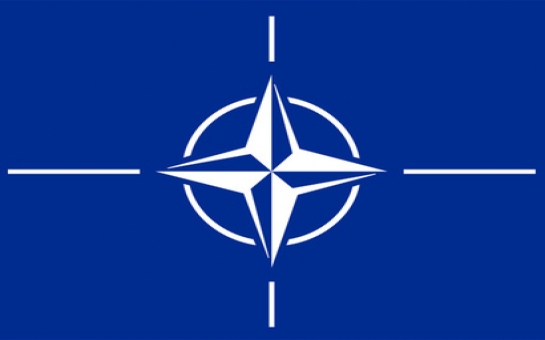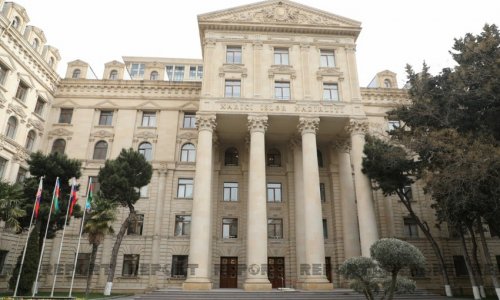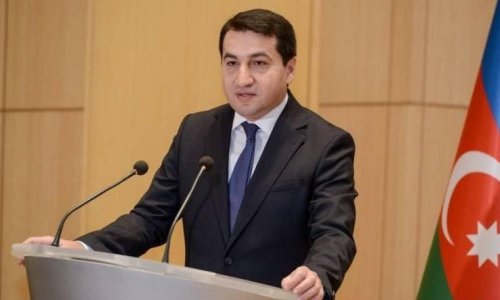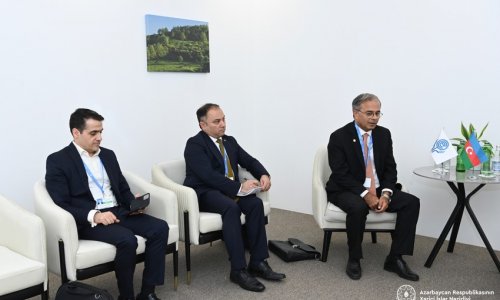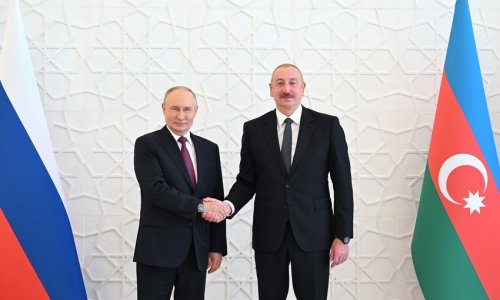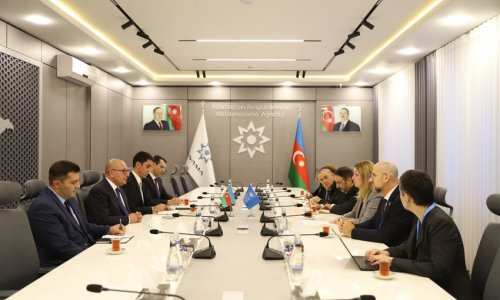Scientists, researchers and experts from various countries gathered in Baku on 10 April to exchange views on new initiatives and proposals to engage with NATO through science programmes and activities. Proposals touched on activities in fields ranging from energy security and cyber defence through to the promotion of the role of women in matters related to peace and security.
Addressing participants at the NATO Science for Peace and Security (SPS) Information Day, NATO Assistant Secretary General Sorin Ducaru emphasised the importance of promoting more practical collaboration in civil technologies and research, especially aimed at addressing 21st century security challenges.
“Our NATO-Azerbaijan Partnership Action Plan foresees cooperation to counter important emerging security challenges, including in the field of anti-terrorism, trafficking and non-proliferation ... Joint initiatives under the SPS Programme are an important element of our practical cooperation in these areas,” said Ambassador Ducaru. Indeed, in May 2013, Azerbaijan hosted a major international conference on emerging security challenges with the support of the SPS programme.
Azerbaijani scientists have received more than 80 SPS awards over the last two decades. One major SPS flagship initiative has been the Melange Project, which successfully converted more than one thousand tons of the highly toxic rocket fuel melange into non-hazardous fertilizer between 2006 and 2008. The rocket fuel converter plant was later sent to Uzbekistan to do the same there.
Azerbaijan also participated in the NATO Virtual SILK Highway Project, which provided high-speed internet access to research institutes and helped to connect scientists in the South Caucasus and Central Asia. “The Azerbaijan-NATO partnership of the last 20 years has been a great success. The role of SPS was probably the most undervalued to that end. In fact, SPS made the most substantial impact in forging practical cooperation with specific projects and tangible results,” said the Ambassador of Azerbaijan to NATO, H.E. Khazar Ibrahim.
In the margins of the SPS Information Day, Ambassador Ducaru also discussed NATO-Azerbaijan cooperation with the President of Azerbaijan, the Foreign Minister, his Deputy, the Deputy Minister of National Security and other high-level government officials. SPS members of staff also used the opportunity to conduct a site visit to the ongoing SPS Project ‘Caucasus Seismic Emergency Response’ and engaged in a bilateral meeting with the President of the National Academy of Science.
Speaking at a conference marking 20 years of NATO-Azerbaijan partnership, which took place on 11 and 12 April, Ambassador Ducaru stressed that “an important lesson we have learned over the past years is that these emerging threats do require a cooperative approach. They are global challenges. They do not stop at borders. And as such, they require global responses.” He underlined the continuous importance of partnerships for the Alliance, which will remain part and parcel of NATO’s strategic toolbox.
Since Azerbaijan joined the NATO Partnership for Peace initiative in 1994, it has been a reliable partner. It contributes troops to the NATO-led operation in Afghanistan and is granting over-flight as well as transit rights through its country in support of the mission. It also provides important financial support to the training of Afghan security forces.
Partnership brings mutual benefits. NATO is assisting Azerbaijan with the training and modernisation of its armed forces. Dialogue regularly takes place at the highest political level: President Aliyev last visited NATO Headquarters in January this year and NATO Foreign Ministers decided to further step up practical cooperation with Azerbaijan at their most recent meeting in April.
Bakudaily.az

